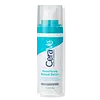What's inside
What's inside
 Key Ingredients
Key Ingredients

 Benefits
Benefits

 Concerns
Concerns

 Ingredients Side-by-side
Ingredients Side-by-side

Water
Skin ConditioningPropanediol
SolventDimethicone
EmollientCetearyl Ethylhexanoate
EmollientNiacinamide
SmoothingAmmonium Polyacryloyldimethyl Taurate
Emulsion StabilisingDipotassium Glycyrrhizate
HumectantHydrogenated Lecithin
EmulsifyingPotassium Phosphate
BufferingCeramide NP
Skin ConditioningCeramide AP
Skin ConditioningCeramide EOP
Skin ConditioningCarbomer
Emulsion StabilisingCetearyl Alcohol
EmollientBehentrimonium Methosulfate
Dimethiconol
EmollientLecithin
EmollientSodium Citrate
BufferingRetinol
Skin ConditioningSodium Hyaluronate
HumectantSodium Lauroyl Lactylate
EmulsifyingCholesterol
EmollientPhenoxyethanol
PreservativeAlcohol
AntimicrobialIsopropyl Myristate
EmollientCaprylyl Glycol
EmollientCitric Acid
BufferingTrisodium Ethylenediamine Disuccinate
Pentylene Glycol
Skin ConditioningPhytosphingosine
Skin ConditioningXanthan Gum
EmulsifyingPolysorbate 20
EmulsifyingEthylhexylglycerin
Skin ConditioningWater, Propanediol, Dimethicone, Cetearyl Ethylhexanoate, Niacinamide, Ammonium Polyacryloyldimethyl Taurate, Dipotassium Glycyrrhizate, Hydrogenated Lecithin, Potassium Phosphate, Ceramide NP, Ceramide AP, Ceramide EOP, Carbomer, Cetearyl Alcohol, Behentrimonium Methosulfate, Dimethiconol, Lecithin, Sodium Citrate, Retinol, Sodium Hyaluronate, Sodium Lauroyl Lactylate, Cholesterol, Phenoxyethanol, Alcohol, Isopropyl Myristate, Caprylyl Glycol, Citric Acid, Trisodium Ethylenediamine Disuccinate, Pentylene Glycol, Phytosphingosine, Xanthan Gum, Polysorbate 20, Ethylhexylglycerin
Water
Skin ConditioningGlyceryl Stearate
EmollientButylene Glycol
HumectantErythritol
HumectantFructooligosaccharides
HumectantAvena Sativa Kernel Extract
AbrasiveCeramide NP
Skin ConditioningCeramide Ns
Skin ConditioningCeramide Ng
Skin ConditioningCeramide As
Skin ConditioningCeramide EOP
Skin ConditioningCeramide AP
Skin ConditioningTocopherol
AntioxidantSodium Hyaluronate
HumectantGlycerin
HumectantC14-22 Alcohols
Emulsion StabilisingPEG-100 Stearate
Sodium Polyacryloyldimethyl Taurate
Emulsion StabilisingCaprylyl Methicone
Skin ConditioningSodium Benzoate
MaskingC12-20 Alkyl Glucoside
EmulsifyingC30-45 Alkyl Cetearyl Dimethicone Crosspolymer
EmollientIsohexadecane
EmollientPEG-7 Glyceryl Cocoate
EmulsifyingPhenoxyethanol
Preservative1,2-Hexanediol
Skin ConditioningHydrogenated Lecithin
EmulsifyingPropylene Glycol
HumectantCastor Oil Hydrogenated Ethoxylated
PerfumingEthylhexylglycerin
Skin ConditioningWater, Glyceryl Stearate, Butylene Glycol, Erythritol, Fructooligosaccharides, Avena Sativa Kernel Extract, Ceramide NP, Ceramide Ns, Ceramide Ng, Ceramide As, Ceramide EOP, Ceramide AP, Tocopherol, Sodium Hyaluronate, Glycerin, C14-22 Alcohols, PEG-100 Stearate, Sodium Polyacryloyldimethyl Taurate, Caprylyl Methicone, Sodium Benzoate, C12-20 Alkyl Glucoside, C30-45 Alkyl Cetearyl Dimethicone Crosspolymer, Isohexadecane, PEG-7 Glyceryl Cocoate, Phenoxyethanol, 1,2-Hexanediol, Hydrogenated Lecithin, Propylene Glycol, Castor Oil Hydrogenated Ethoxylated, Ethylhexylglycerin
 Reviews
Reviews

Ingredients Explained
These ingredients are found in both products.
Ingredients higher up in an ingredient list are typically present in a larger amount.
Ceramide AP is formally known as Ceramide 6.
Ceramides are intercellular lipids naturally found in our skin that bonds dead skin cells together to create a barrier. Having a strong skin barrier leads to more firm and hydrated skin.
They are known for their ability to hold water and thus are a great ingredient for dry skin. By bolstering the skin ceramides act as a barrier against irritating ingredients. This can help with inflammation as well.
If you would like to eat ceramides, sweet potatoes contain a small amount.
Read more about other common types of ceramides here:
Ceramide NP
Ceramide EOP
Ceramide EOP is formally known as Ceramide 1 and Ceramide 1 A.
EOP stands for a linked Ester fatty acid, a linked Omega hydroxy fatty acid, and the Phytosphingosine base.
Ceramides are intercellular lipids naturally found in our skin. They bind dead skin cells together to create a barrier. The ceramides in our skin have the ability to hold water to keep our skin hydrated.
Ceramides are an important building block for our skin barrier. A strong skin barrier helps with:
If you would like to eat ceramides, sweet potatoes contain a small amount.
Read more about other common types of ceramides here:
Learn more about Ceramide EOPCeramide NP is a type of ceramide and formally known as ceramide 3.
Ceramides are intercellular lipids naturally found in our skin that bonds dead skin cells together to create a barrier. They are known for their ability to hold water and thus are a great ingredient for dry skin.
Ceramides are an important building block for our skin barrier. A stronger barrier helps the skin look more firm and hydrated. By bolstering the skin ceramides act as a barrier against irritating ingredients. This can help with inflammation as well.
If you would like to eat ceramides, sweet potatoes contain a small amount.
Read more about other common types of ceramides here:
Ceramide AP
Ceramide EOP
Ethylhexylglycerin (we can't pronounce this either) is commonly used as a preservative and skin softener. It is derived from glyceryl.
You might see Ethylhexylglycerin often paired with other preservatives such as phenoxyethanol. Ethylhexylglycerin has been found to increase the effectiveness of these other preservatives.
Hydrogenated Lecithin is created from the hydrogenation of lecithin (a group of phospholipids). Hydrogenation is a chemical reaction between hydrogen and another element.
This ingredient is an emollient and emulsifier. As an emollient, it helps soften skin by trapping moisture within. As an emulsifier, it prevents oil and water ingredients from separating.
Phenoxyethanol is a preservative that has germicide, antimicrobial, and aromatic properties. Studies show that phenoxyethanol can prevent microbial growth. By itself, it has a scent that is similar to that of a rose.
It's often used in formulations along with Caprylyl Glycol to preserve the shelf life of products.
Sodium Hyaluronate is hyaluronic acid's salt form. It is commonly derived from the sodium salt of hyaluronic acid.
Like hyaluronic acid, it is great at holding water and acts as a humectant. This makes it a great skin hydrating ingredient.
Sodium Hyaluronate is naturally occurring in our bodies and is mostly found in eye fluid and joints.
These are some other common types of Hyaluronic Acid:
Learn more about Sodium HyaluronateWater. It's the most common cosmetic ingredient of all. You'll usually see it at the top of ingredient lists, meaning that it makes up the largest part of the product.
So why is it so popular? Water most often acts as a solvent - this means that it helps dissolve other ingredients into the formulation.
You'll also recognize water as that liquid we all need to stay alive. If you see this, drink a glass of water. Stay hydrated!
Learn more about Water